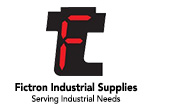Fictron Industrial Supplies Sdn Bhd
No. 7 & 7A,
Jalan Tiara, Tiara Square,
Taman Perindustrian Sime UEP,
47600 Subang Jaya,
Selangor, Malaysia.
No. 7 & 7A,
Jalan Tiara, Tiara Square,
Taman Perindustrian Sime UEP,
47600 Subang Jaya,
Selangor, Malaysia.
+603-8023 9829
+603-8023 7089
Fictron Industrial
Automation Pte Ltd
140 Paya Lebar Road, #03-01,
AZ @ Paya Lebar 409015,
Singapore.
+65 31388976
sg.sales@fictron.com
Automation Pte Ltd
140 Paya Lebar Road, #03-01,
AZ @ Paya Lebar 409015,
Singapore.
+65 31388976
sg.sales@fictron.com
5 Things That Can Sabotage a Startup and How to Avoid Them
04 Nov 2019


View Full Size
In this column IEEE Fellow Chenyang Xu shares five popular hurdles he’s seen that can drain a startup and offers how to avoid them. Xu is a founding partner at the Silicon Valley Future Academy of Palo Alto, Calif., and an accomplice at the Corporate Innovators Huddle of Menlo Park, Calif. The CIH provides a forum to help large companies be more innovative by investing in and partnering with startups. Xu is also a managing partner at Perception Vision Medical Technologies, a startup in Guangzhou, China, involved with artificial intelligence. He has recommended hundreds of tech entrepreneurs and investors during the past two decades.
STAYING IN THE WEEDS
Engineering entrepreneurs in some cases are their own worst enemy, Xu says. They are inclined to be so passionate about their invention that they spend too much time on engineering tasks rather than on customer needs, business development, fundraising, sales, and growing the company. “It’s understandable,” Xu says, “because engineering is what they excel in and are most comfortable doing. But this can bring down the company. “You just have to change your mindset. The success of the company does not lie in staying in your comfort zone. It takes courage to leave your comfort zone to do activities you’re not experienced with. “Often it requires someone else to alert them that they can’t just focus on engineering.”
WORKING IN ISOLATION
Don’t waste time developing a product without knowing there is a market for it, Xu cautions. “I've seen several engineers develop a product - some for far too long - dreaming somebody will buy it. But when it’s finally ready, there are no customers for it, or the market has shifted,” he says. “That’s a lot of wasted time and money, and very sad to see.”
Never create a technology or a product without doing your homework first, Xu says. He recommends getting out of the lab or office and visiting as many prospective customers as possible to learn about their needs and workflow as well as their frustrations with current products. After you have done that, figure out the value proposition for your product and why a customer would want to buy it. Also learn about your competitors’ products and their selling points.
“It’s crucial to show investors tangible evidence that you’ve done all this,” Xu says. “They want to make sure your invention is the right product or market fit for scaling up and growing the company.”
OVERLOOKING INTELLECTUAL PROPERTY
Xu says it is important for tech startups making sure the intellectual property (IP) on which their invention is based is their own and doesn’t violate that of another company. If it does, that’s a significant risk with serious implications.
“I've seen startups sued by other competitors—large or small,” Xu says. “This prevents them from raising money from investors or selling the product. Eventually the startup goes out of business.”
Those who have left an employer to start their own company in the same market or are developing a comparable technology have to be extremely careful, Xu says. If the invention was derived from work done for the former employer, he suggests asking the company to license its technology to you.
He proposes hiring a patent attorney to consistently conduct IP audits at key company milestones, like when the company starts developing a new product, makes improvements to an existing one, or adds a new feature. And see to it that to protect your own IP by filing for patents.
NEGLECTING SALES
Don’t overlook the challenges that come with selling the product, Xu says. Founders need to put plenty of work into developing the sales strategy and employing the right people. The salesperson needs to know the product inside and out, as well as the customers’ needs - and be able to explain those needs to the engineering team.
A popular mistake an engineering founder makes, Xu says, is hiring a sales manager who has prior experience selling existing products from established companies but is inexperienced in selling new products to new markets. “I’ve seen many sales managers pull down a promising startup because they’re used to selling an existing product in an existing market to existing customers,” Xu says. “Selling a new technology from a startup is a very different process.”
Another failing is employing so many salespeople before the product is ready to hit the market. “That can be a recipe for disaster,” Xu says, “because the company may not be ready to scale the product that quickly, but the sales people are waiting around to sell it. That puts pressure on the engineering team, and it’s not a good way to grow.”
FALLING DOWN ON FUNDRAISING
Founders need to raise capital continuously to keep their company afloat and growing. Fundraising is never easy, but it’s mainly difficult for those engineering founders who used to work for large public companies and never had to worry about where the money was coming from.
Preparation is essential. Xu recommends creating a clear fundraising strategy, which includes a business plan with goals and objectives, as well as a timeline for how long the money is likely to last. “The vast majority of tech startups require multiple rounds of fundraising to reach profitability,” Xu says. “Just raising the initial funding doesn’t mean you’re successful.”
After the first round of fundraising - the seed round - it is on to others: first Series A, then B, then C. Each one targets different stages of the company’s growth. Potential investors expect various things from a business plan, depending on the fundraising stage, including a proof-of-concept demonstration, details on revenue realized and forecast, or expansion plans.
Xu says founders need to stay on top of each round’s investment requirements. “My recommendation is the moment you complete the first round, get the investment requirements for the next round ready and build them into your product-development plan,” he says. “The key to successful company building is to not run out of cash.”























